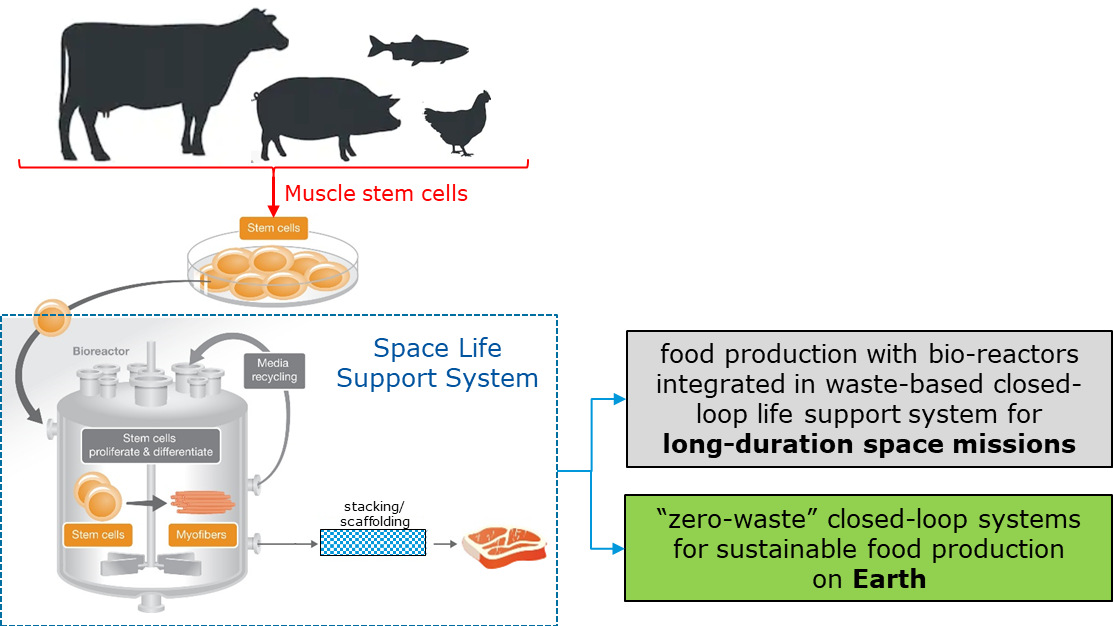This idea regards the possibility of application of the emerging 'cellular agriculture' as a novel technique to produce “renewable” nutrient sources (food) for future long-term human space missions. Future human long-term missions in spacecraft or in planetary outposts, e.g. on Moon and Mars, will need solutions for producing/cultivating food in-situ, in view to: - limit the amount of long shelf-life food to be transported; - have the possibility to produce new food, in case the long shelf-life food is, by accident or unforeseen causes, degraded or lost; - reach a higher level of self-sustainability and have availability of fresh food. Among all the food produced on Earth, the conventional production of animal-based food in space would be unfeasible. Cellular agriculture is the production of agriculture products (animal- and plant-based) from cell cultures, and it is a rapidly evolving research field. Products produced from cell cultures can be the same as those harvested from animals or plants. Their production consists in cellular growth in bio-reactors, which are a well-established technology in space. While the amount of culturing medium necessary to have on board the spacecraft would be part of the study (together with the possibility to re-use it and integrate it in a closed waste-based loop life-support system), it would be in principle possible to continue producing, e.g., "cultured meat" indefinitely without introducing new cells from a living organism. In addition, cellular agriculture offers the possibility to ‘design’ the final product, e.g. making it with a higher nutritious content and healthier, which would be important in order to keep astronauts' diet and health under control. It is proposed to perform two separate studies to assess the feasibility of cellular agriculture in space to produce 1) cultured meat and 2) plant-cell cultured products, with bio-reactors integrated in waste-based closed-loop life-support systems.

